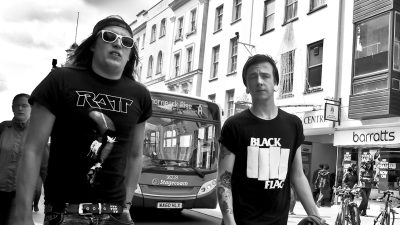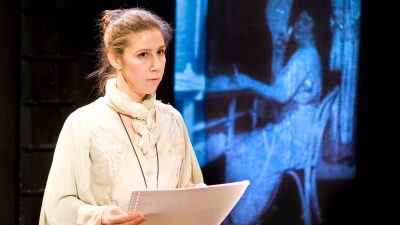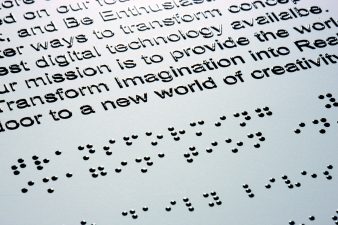A Blind Writer's Notebook
The Brain-Smashing, Pity-Bashing Art of Blind Punk
Embracing the stigma and using it as a weapon feels punk.
How Helen Keller’s Vaudeville Stint Inspired Me as an Artist
The idea of exploitation seemed to me fraught with assumptions about what a blind person is supposed to do and be—assumptions that insist blind people be poets and prophets, saints or beggars, not lowbrow entertainers.
When People See Your Blindness as Superhuman, They Stop Seeing You as Human
The sixth sense, second sight, third eye. We are supposed to have both extra-accurate hearing and perfect pitch, more numerous and more acute taste buds, a finer touch, a bloodhound’s sense of smell.
Parting the Sea, and Why the White Cane is a Symbol of Power, Not Helplessness
I felt that whipping out the white cane would irrevocably launch me into the kingdom of the blind, and, for many years, I did not want to go there.
Mourning My Lost Dark as a Blind Artist
For me, distinctions between light and dark have dissolved as my blindness has worsened. I do not experience blindness as darkness or blackness.
Are Blind People Denied Their Sexuality?
The contortions that people will undergo to desexualize me, a blind woman, can be overwhelming.
The Blind Feeding the Lame: Growing Disabled with Dad
As I turned into a blind person, my dad metamorphosed into a disabled person.
E-Books, Accessibility, Luddites, and the Techno-Dazzled
“Blind and print-handicapped readers do not have the luxury of deciding whether they will go old-school and deny the digital age.”
Reading Blind
An awesome braille reader’s fingers move smoothly across the page. My fingers, however, move like caterpillars on Klonopin.
Cancer Vs. Blindness
Blindness can be a pain in the ass, and infantilizing, even depressing sometimes, but it is not cancer.










